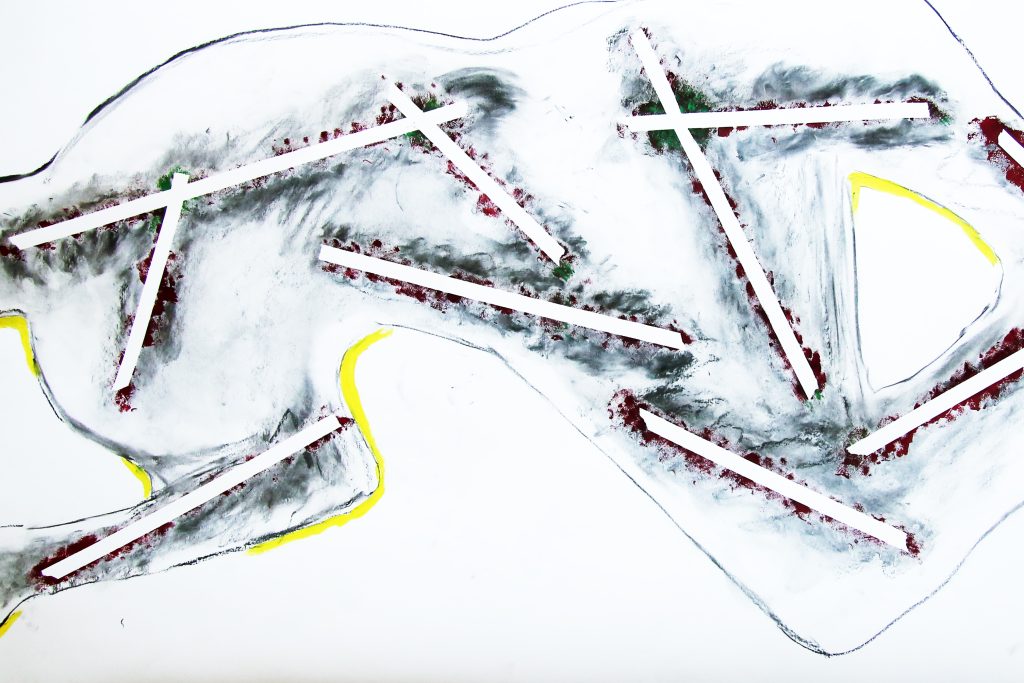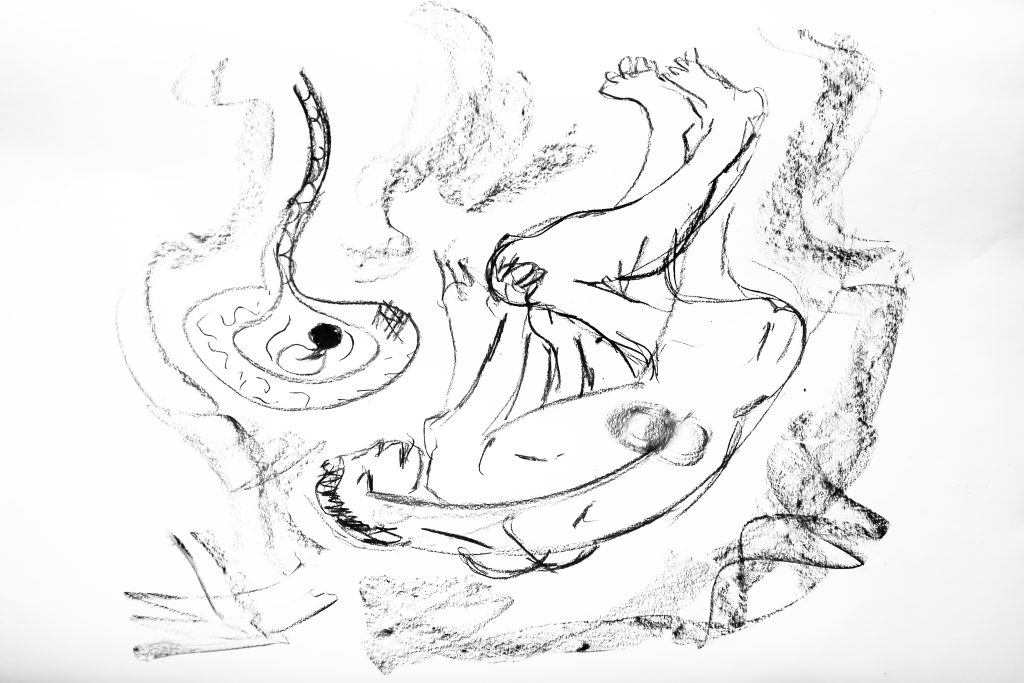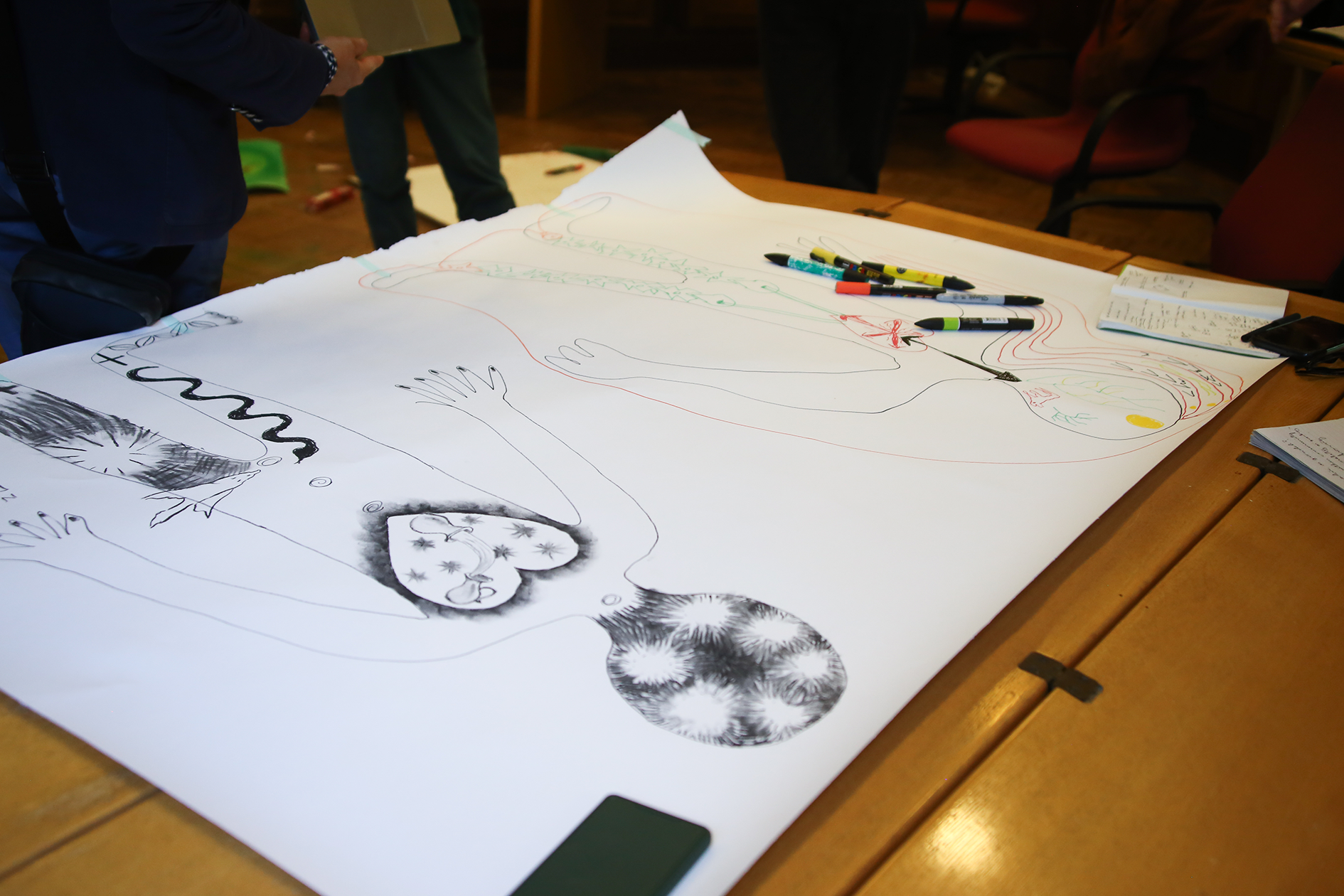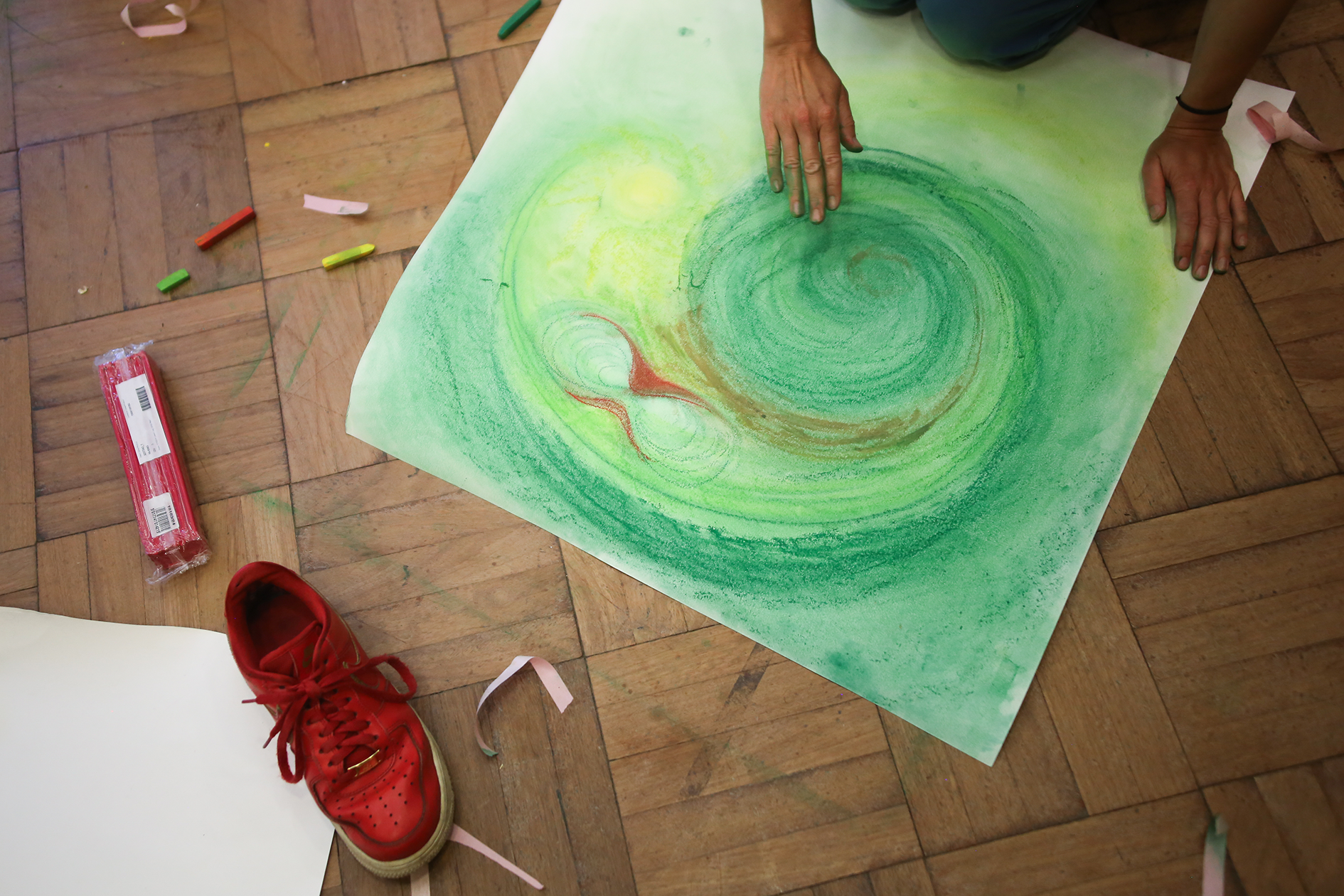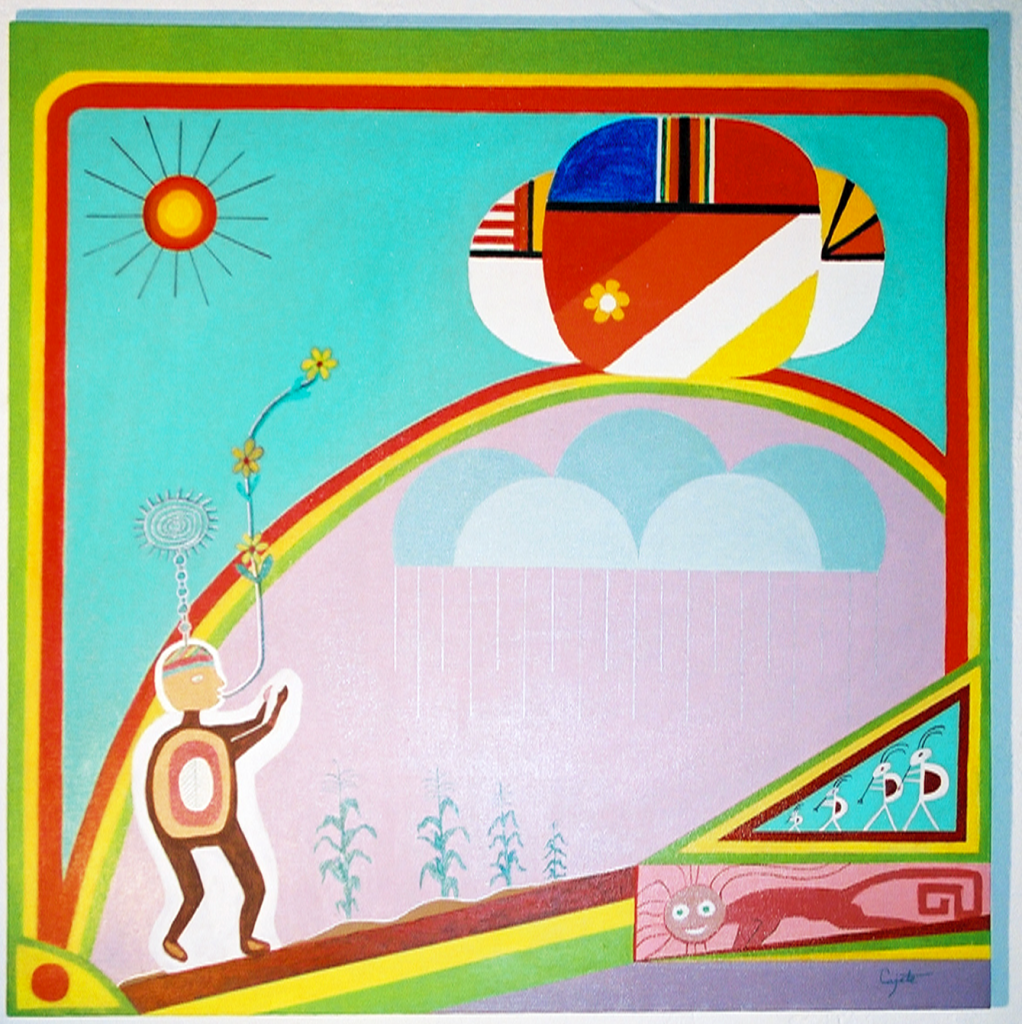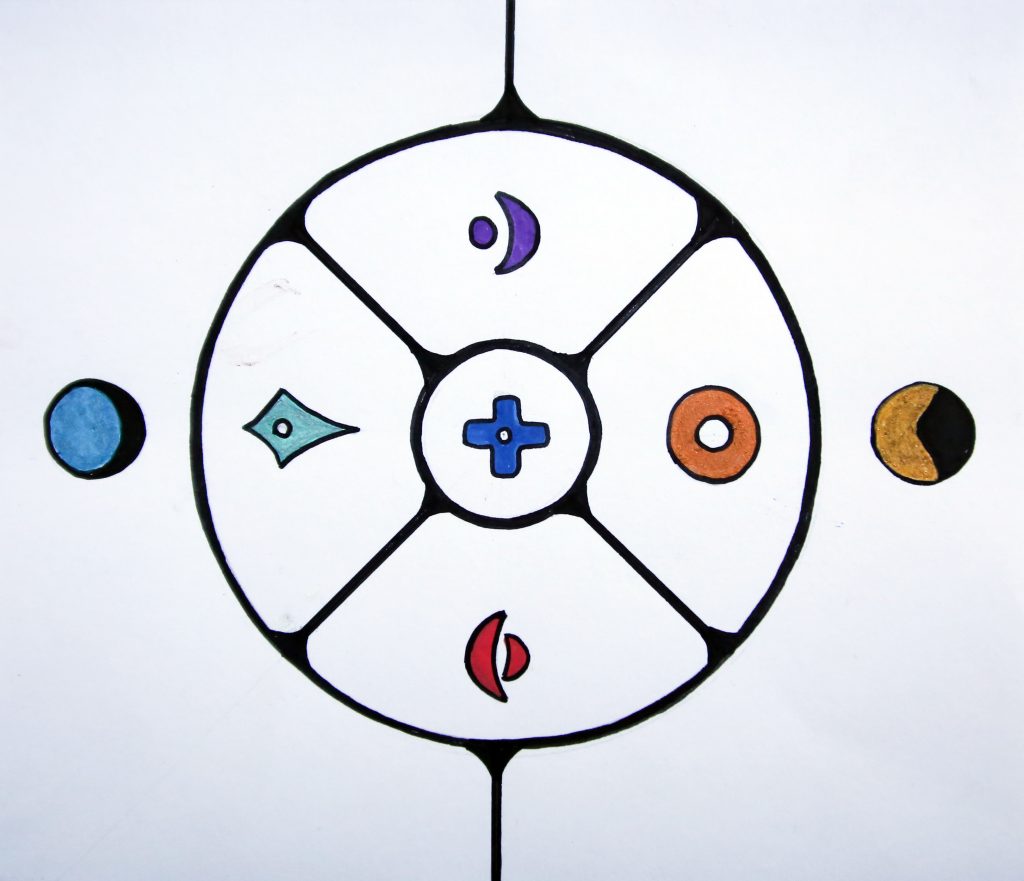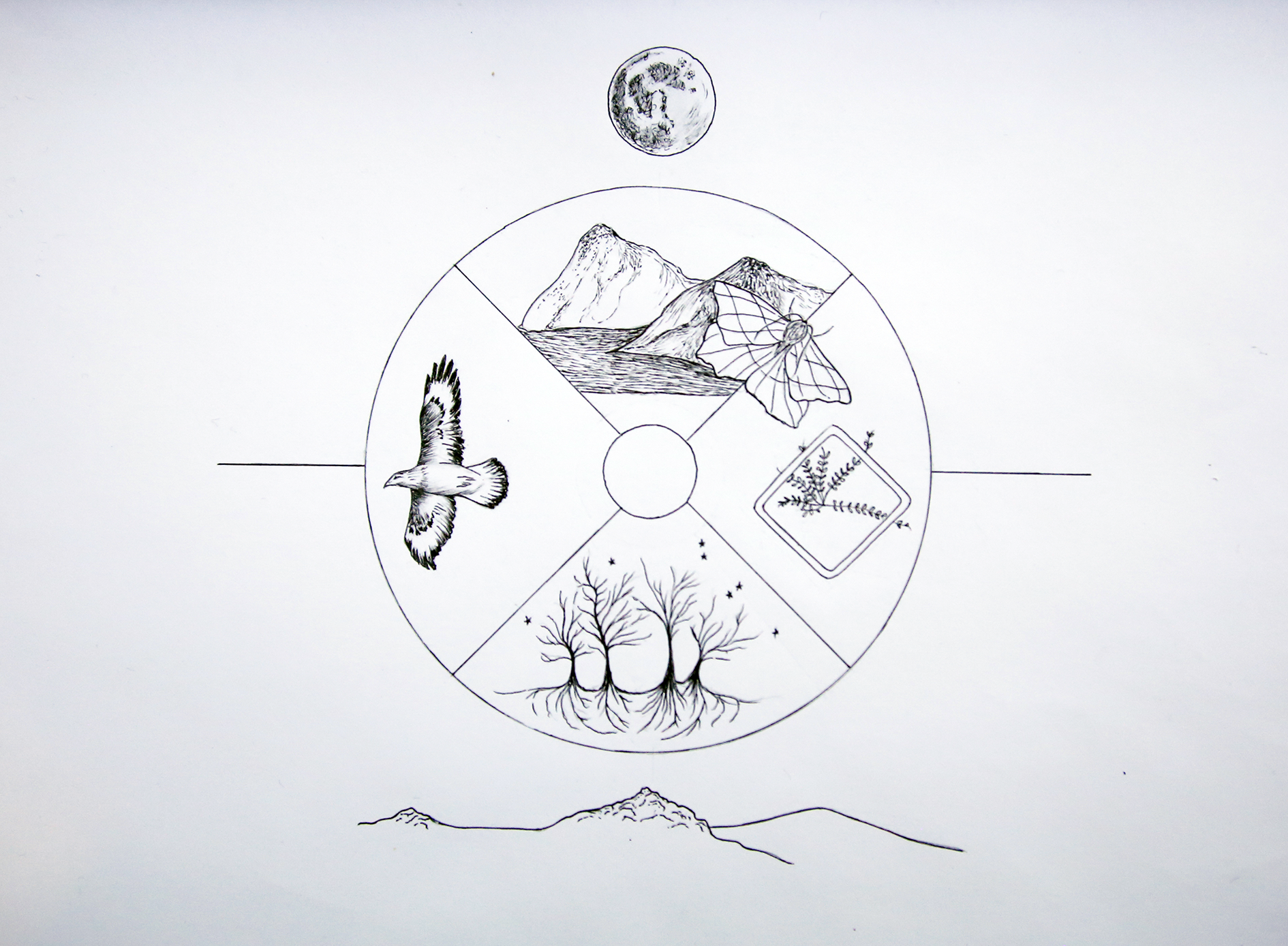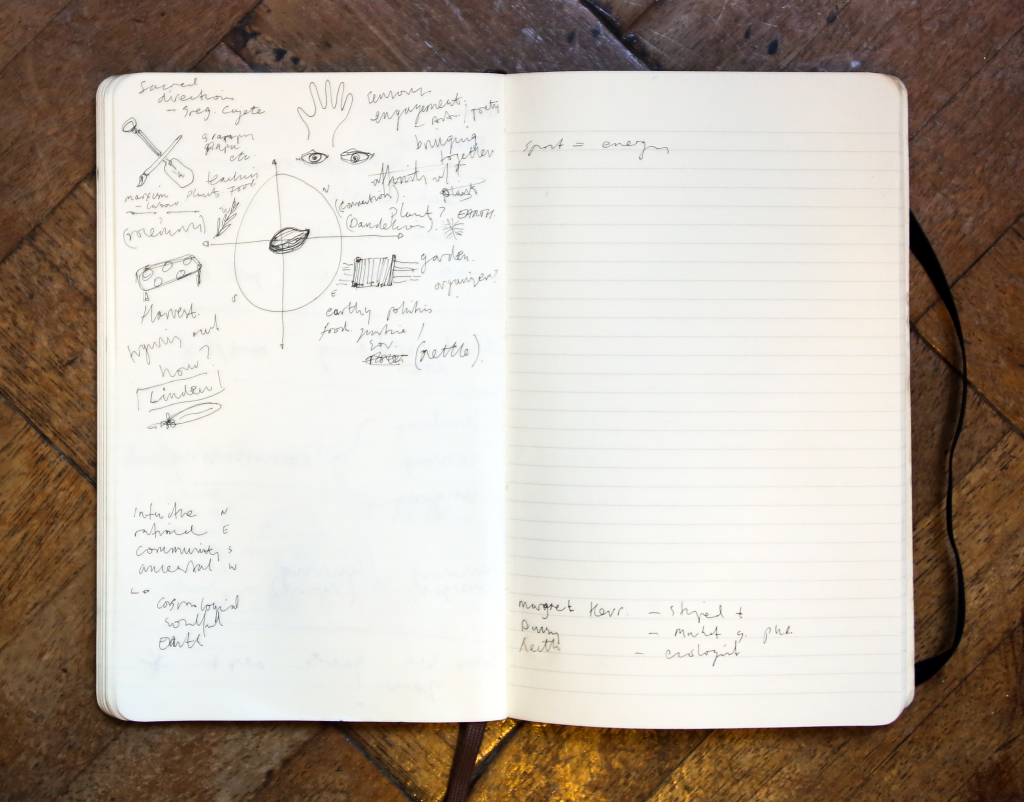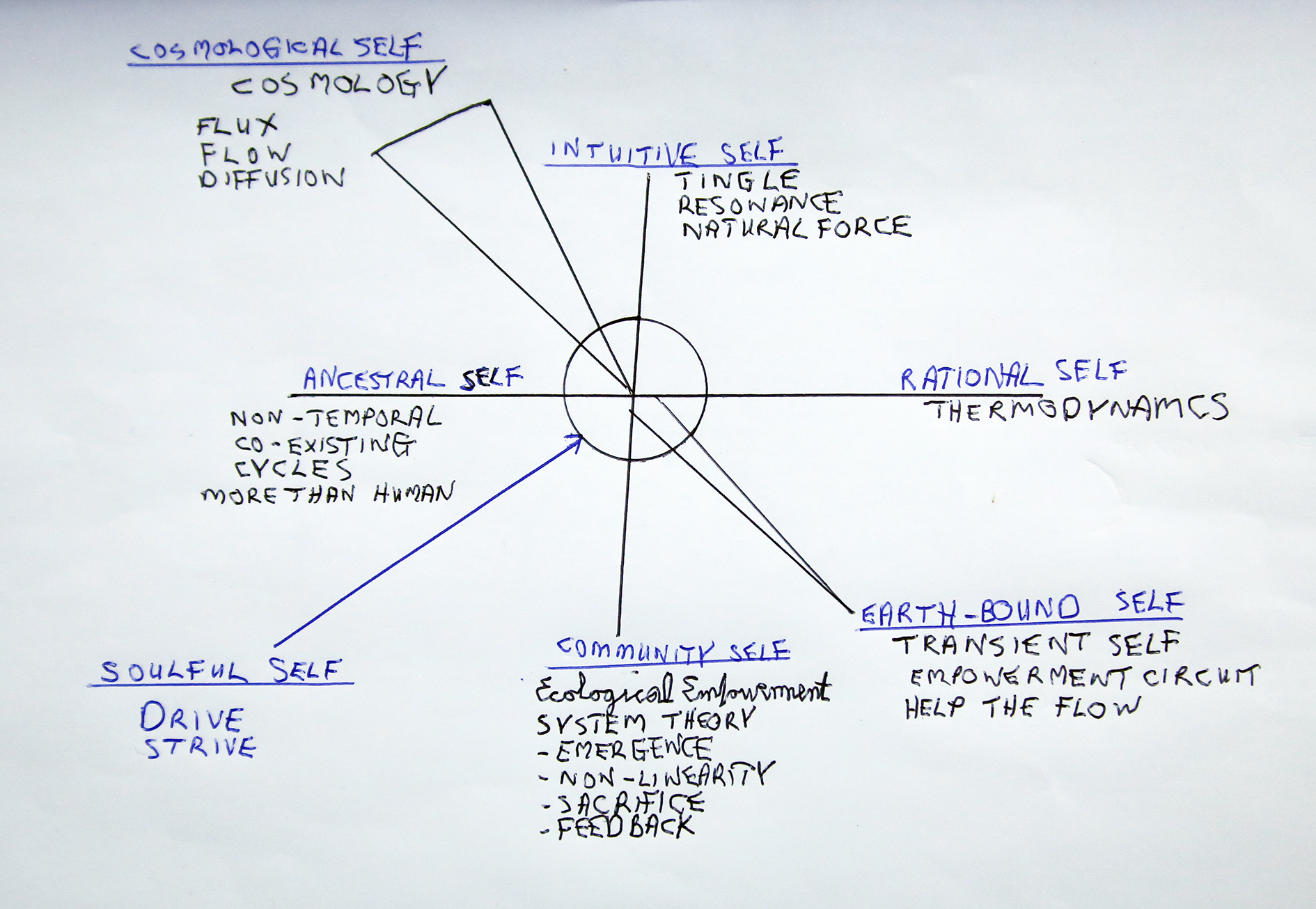A Workshop with Gregory Cajete
The Indigenous worldview is rooted in a pan-species epistemology. It cultivates axiological relationships of humans to the natural world through an inclusive taxonomy of ‘being alive’ where everything – plants, rocks, minerals, lakes, and deserts – has its own intelligence and creative process.
In Native Science, causality reflects the belief that cause and effect go beyond the physical principles such as synchronicity and the action of natural energies and entities to include the transformation of energy to other forms. The state of flux and its constantly re-forming cycles of interaction are creative. They flow from the ‘implicate order’ – the inherent potential of the universe – into the ‘explicate order’ of material and energetic expressions (Bohm 1973; Cajete 2004). This workshop explored non-visual forms of sensing, the four cardinal directions and orientation in ecological time, multi-species epistemologies and whole-body storying.
Gregory Cajete is Professor Emeritus and former Director of the Native American Studies Programme at the University of New Mexico. He is a renowned author and artist from Santa Clara Pueblo, widely known for his work on culturally based science. His books include: Look to the Mountain: An Ecology of
Indigenous Education (1993); Igniting the Sparkle: An Indigenous Science Model (1999); Native Science: Natural Laws of Interdependence (2000); Critical Neurophysiology and Indigenous Wisdom (2010); and Indigenous Community: Rekindling the Teachings of the Seventh Fire (2015).
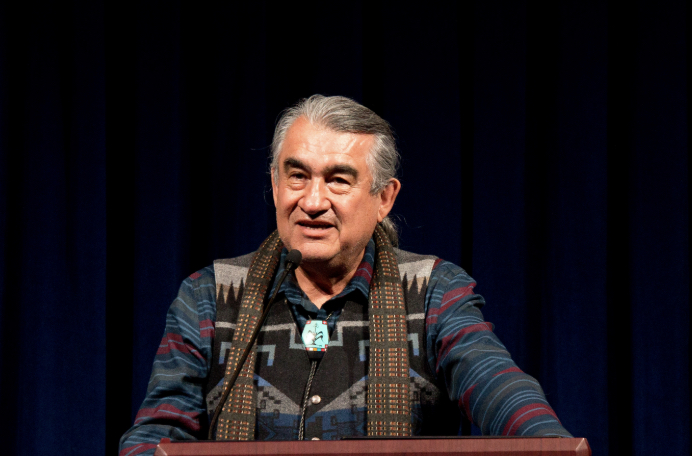
Cardinal Directions
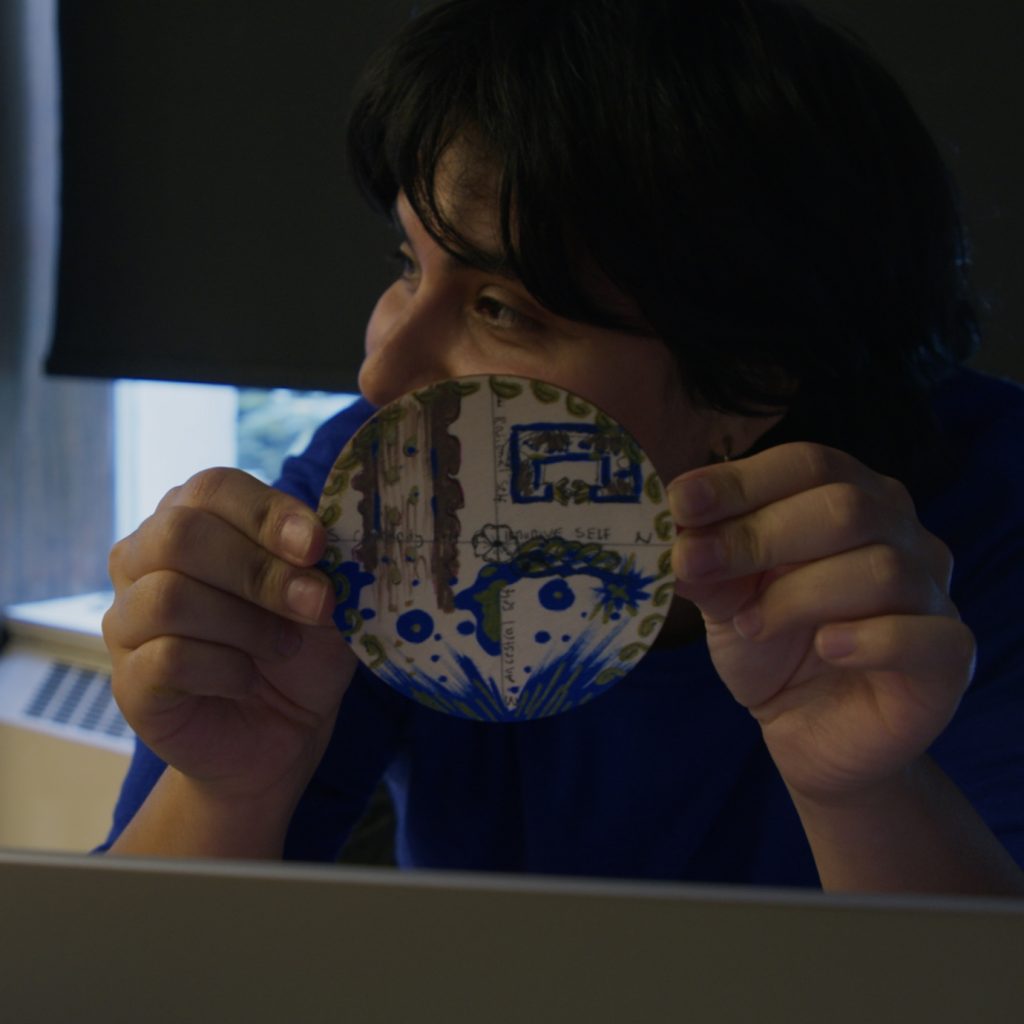
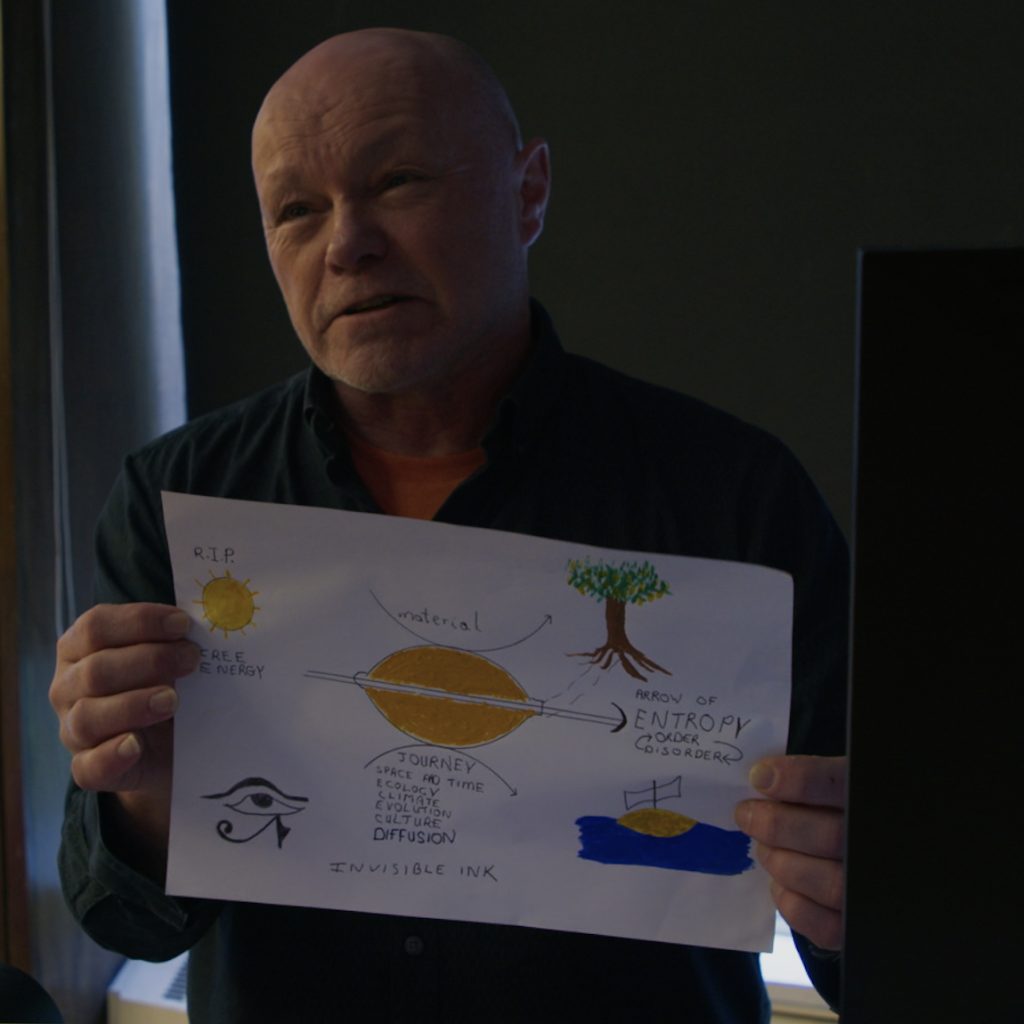
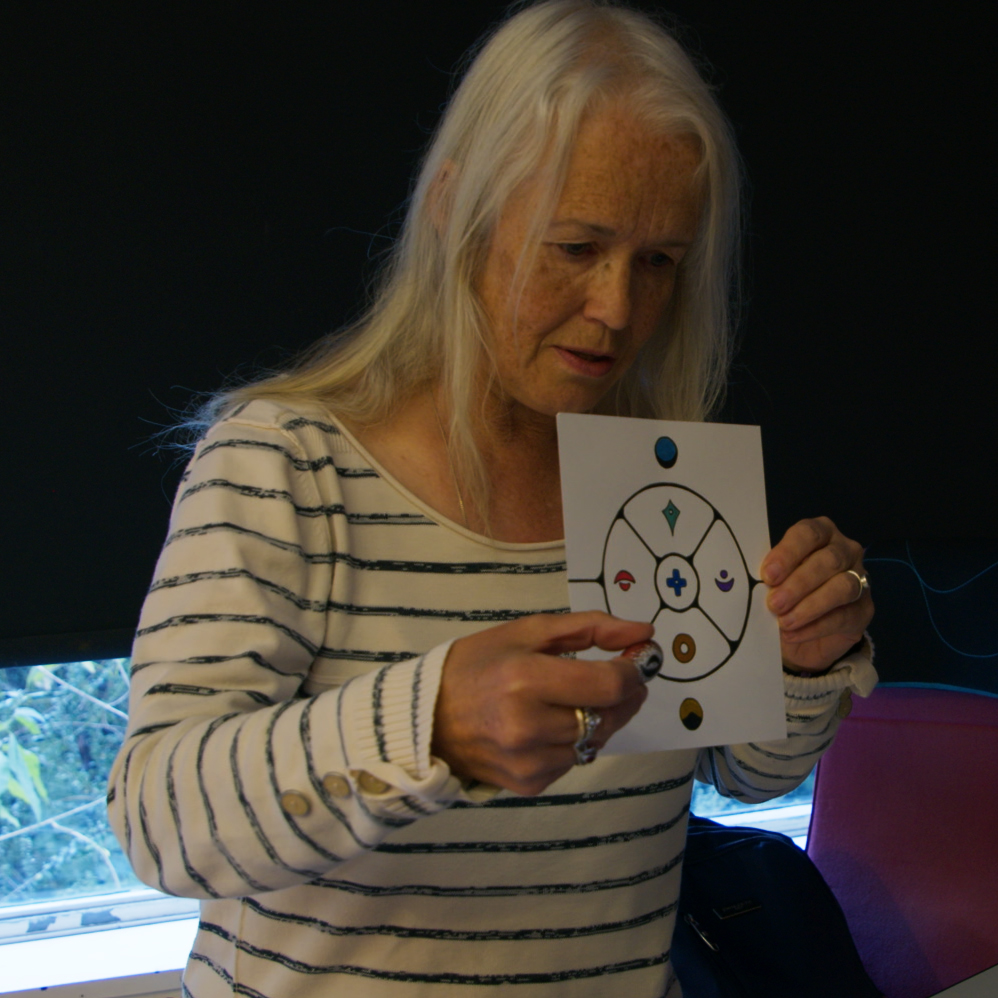
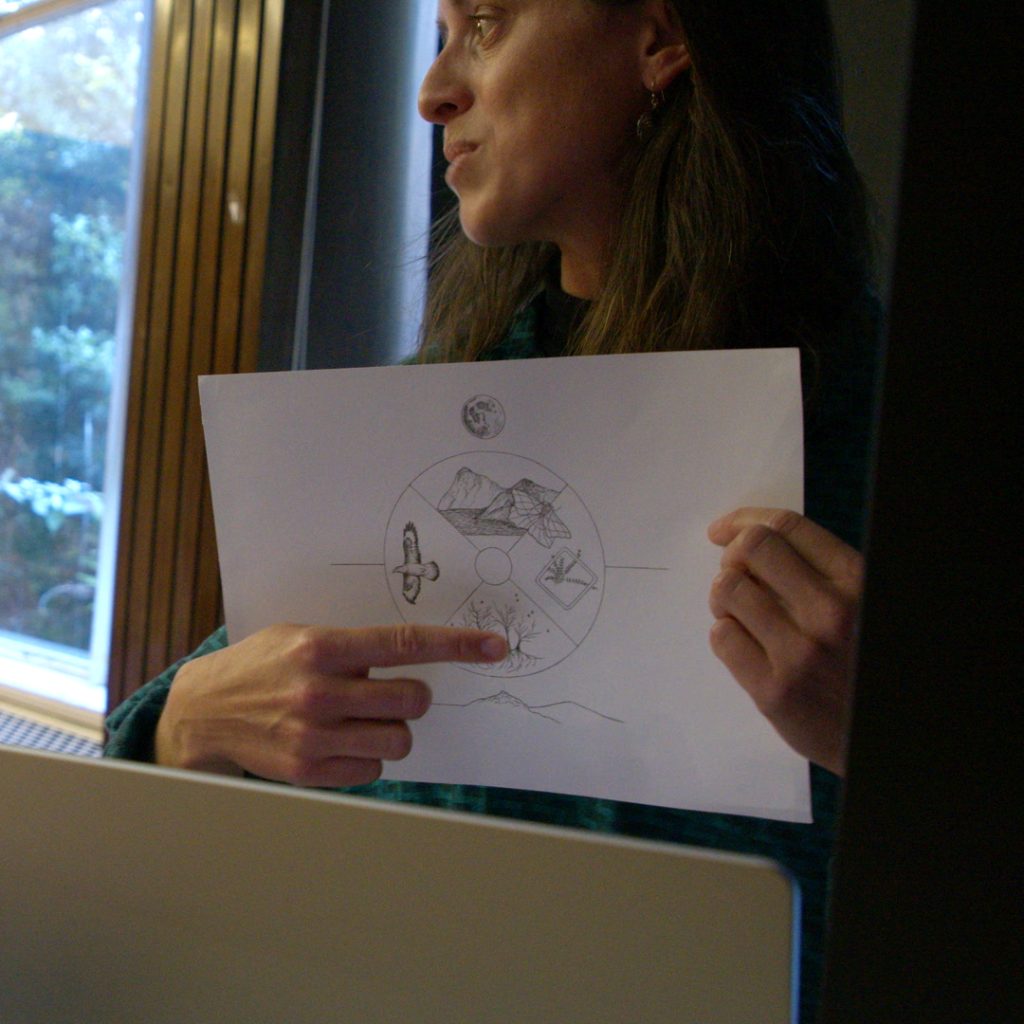
Whole Body Storying
